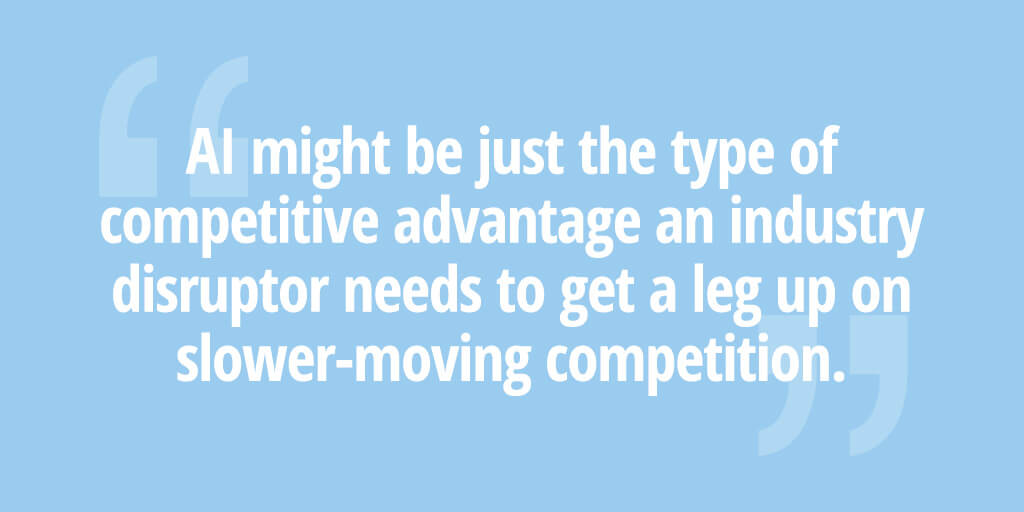Crawl with analytics before running with artificial intelligence
By Brent Dykes, Director, Data Strategy
Tuesday, September 26, 2017

In 2017, artificial intelligence (AI) is an emerging technology trend that is generating increasing buzz among business leaders of both start-ups and well-established companies. From virtual assistants to image recognition to self-driving cars, we’re only just beginning to scratch the surface of how AI-related technology will impact our daily lives and transform how businesses operate. IBM’s Chief Innovation Officer Bernie Meyerson optimistically predicts 2017 will be “the year of the solution as opposed to the year of the experiment.”

The worlds of artificial intelligence and Internet of Things (IoT) are poised to collide. This year’s CES conference in Las Vegas was packed with all kinds of smart devices touting new AI capabilities. Artificial intelligence will transform everyday objects just like electricity did more than a century ago. As Wired Editor Kevin Kelly stated, “Everything that we formerly electrified we will now cognitize.” Just as electricity pulses through all businesses today, AI-related technology will also begin to re-shape how businesses work. Box CEO Aaron Levie foresees AI technology introducing “a dramatic change in how enterprise software is designed and how enterprise software takes advantage of all the data that’s in our platforms to produce way better outcomes for customers.”
While the tech giants such as Amazon, Google, Apple, IBM, and Microsoft have been investing in AI technology for years, the question is whether 2017 is the year when we begin to see more mainstream adoption. While the marketing hype will be everywhere and we’ll definitely see advancements in 2017, the technology will not reach a tipping point this year. A recent Forrester survey found that while 58% of companies were researching AI, only 12% were actually usingAI systems. While we won’t see the wide-spread adoption of artificial intelligence technology for a few years, that doesn’t mean you shouldn’t start preparing your organization for an AI-powered future today. In many cases, it might be just the type of competitive advantage an industry disruptor needs to get a leg up on slower-moving competition.
Recently, some companies have suggested skipping traditional analytics and jumping right into AI. Last October, Babson professor and analytics expert Tom Davenport reported how he encountered several companies at Salesforce’s Dreamforce conference that wanted “to ‘leapfrog’ over traditional business intelligence and analytics capabilities and go directly into AI-related environments.”He noted how one manager admitted her non-profit organization had used almost no analytics in the past but was excited to jump into AI. Another technology executive mentioned to him, “We’ve had enough bar charts. Nobody has time to digest them anyway. We want our analytics to tell people what to do.” With many organizations still struggling to embrace data,analytics is still an area that all companies need to address before diving into artificial intelligence. Bypassing analytics is not a shortcut to AI because analytics maturity is a key milestone on the path to being successful with AI.
**This article was originally published on Forbes.com on January 11, 2017.
Share this:

Brent is the Director of Data Strategy at Domo. He has over 12 years of enterprise analytics experience and received the 2016 Most Influential Industry Contributor Award from the Digital Analytics Association (DAA). Brent is also a regular Forbes contributor and published author.
